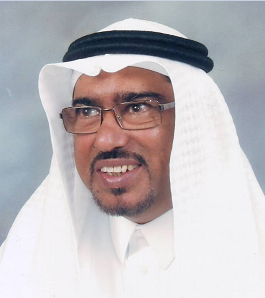RL Blogs

By MEPEC
Apr 22, 2013Dr. Halim Redhwi explores the technology trends, development challenges, and partnership opportunities open to the Middle East Petrochemical industry. |
||
|
challenges for the refining and petrochemical industry in 2013 include: Clean fuels issues and more stringent gasoline, diesel and sulfur regulations as well as increasing biofuel content for exporting refined products, mainly diesel.
Advanced refining technologies will include upgrading low-value heavy oil and residues. Another technology item includes adding value to refinery operations by strengthening integration options with petrochemicals via olefins and aromatics processing. In petrochemicals, there are needs for efficient technologies for the utilization and conversion of low-value alternative feedstocks (mainly natural gas liquids- NGLs) to produce light olefins, mainly ethylene and propylene.
Another potential technology is the petcoke gasification to syngas based chemicals and fertilizers. This will be an attractive option with the start-up of large delayed coking units at SATORP in Jubail and YASREF in Yanbu.
What do you think Saudi Arabia is doing to improve the utilization of technology in existing facilities?
Technology remains one of the main factors that decide the viability of any process-based project along with market size and production economics. The Kingdom has succeeded in becoming strong base of petrochemicals and supply value-added products. Local refiners and petrochemical producers are implementing new process and IT technologies to expand and enhance energy efficiency in their facilities thereby improving overall operating costs.
More concern is on environmental issues related to CO2 capture and its utilization in process streams. A good example of improving the utilization of technologies is the undertaking of refineries in the Kingdom to add to modify their process configuration in order to comply with the 2013 mandatory specifications for gasoline with 10 ppm sulfur, 1% benzene and diesel with 50 ppm. In addition, diesel with 10 ppm of sulfur will be mandatory by 2016.
What are the major technology trends for the petrochemical industry?
The petrochemical industry in the Kingdom is well placed to capitalize upon market opportunities that exist today. The Kingdom is also becoming a hub for research and technologies development in this vital industrial sector. The global competitiveness in the petrochemical business emphasizes the importance the availability of advantaged feedstocks as well as the collaboration between companies.
From a chemical and polymers perspective, we are seeing in the region a growing level of naphtha cracking with the objective of generating olefin feedstocks and downstream derivatives. The industry's response to ever changing feedstock and manufacturing demands will determine its success in the future. Local petrochemical producers have introduced more differentiated, higher value polymers such as polycarbonates and specialty polymers.
Will more companies that invest in technology invited to set up base in the country, according to you?
The production outlook and local/global demand growth drivers look promising. In petrochemicals, the Kingdom has become a global producer of higher value products. Many industrial companies are looking for new opportunities to invest in the Kingdom's petrochemical sector. These companies take into consideration feedstock advantages that will drive the expansions in this sector.
Therefore, investment opportunities depend in the growth of the downstream chemical market especially those related to fibers, performance plastics, rubber, etc. The value-park concept around big chemical complexes will help attract new local businesses related to downstream product applications. Technology providers are also looking to provide their know-how in upgrading refinery processes, mainly those related to clean fuel production.
Can you tell us what MEPEC’s objectives for this year's conference are?
MEPEC is a global Process Engineering Conference and Exhibition that fosters the discussion and exchange of knowledge in all aspects of process engineering. Therefore the main objective of the conference is to address current issues of widespread importance to the refining and petrochemical industry. MEPEC 2013 will focus on how smart engineering, manufacturing and operational excellence create value in the process industry.
The conference’s main theme “Overcoming Future Challenges through Engineering Excellence” was chosen to emphasize the event’s key objective of finding solutions to the various challenges faced by the industry through engineering excellence. The Conference provides an excellent opportunity for regional and international operators and technology, product and service providers to connect, network and discuss the development of innovative ideas and feasible solutions to the growing needs of upstream/downstream sectors in the Oil & Gas and Petrochemical industries.
What are the major issues that you see as being discussed in the conference?
Issues to be discussed at MEPEC 2013 will address real problems and challenges that refiners and petrochemical producers face at their facilities. Major topics include:
Competitive process operations require attention to plant safety, superior technology, innovation, and excellence in operations.
Leading industry experts will share their valuable insights on major issues, including fuel and processing initiatives, latest technological developments impacting refining and petrochemical industry management and performance. Specific refining technologies will be discussed are related to hydroprocessing, FCC, coking, gasoline and diesel processes, improving the quality and properties of polymers and their applications, and more attention on the production of specialty chemicals.
| ||
|
|


.jpg)







